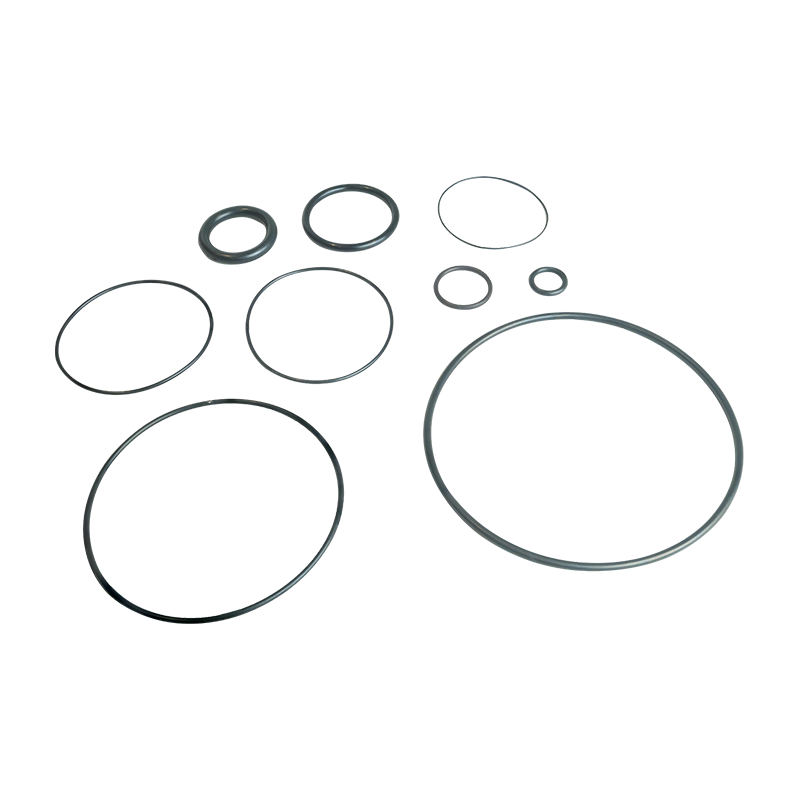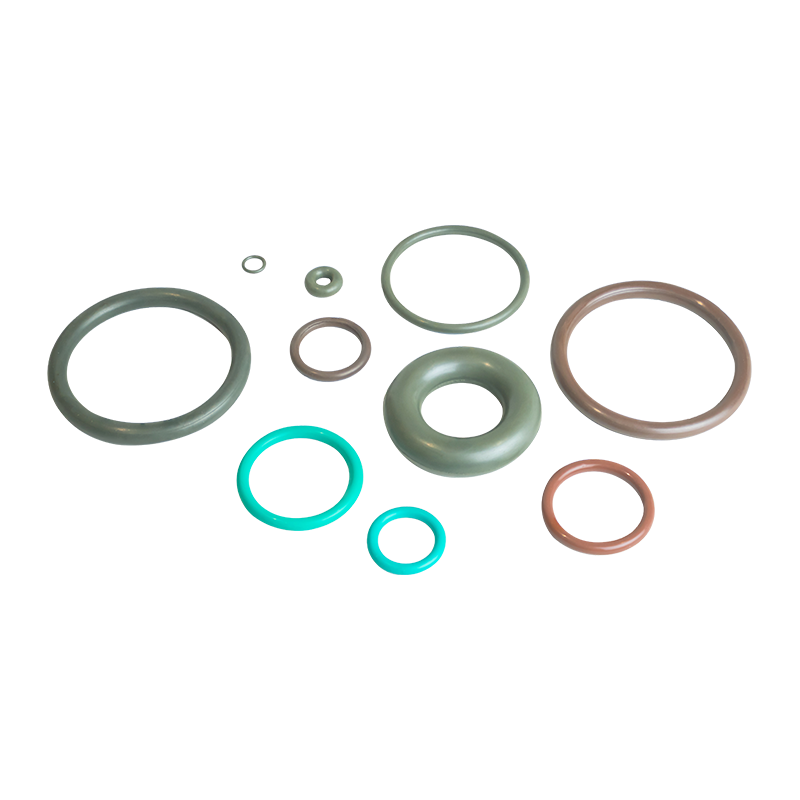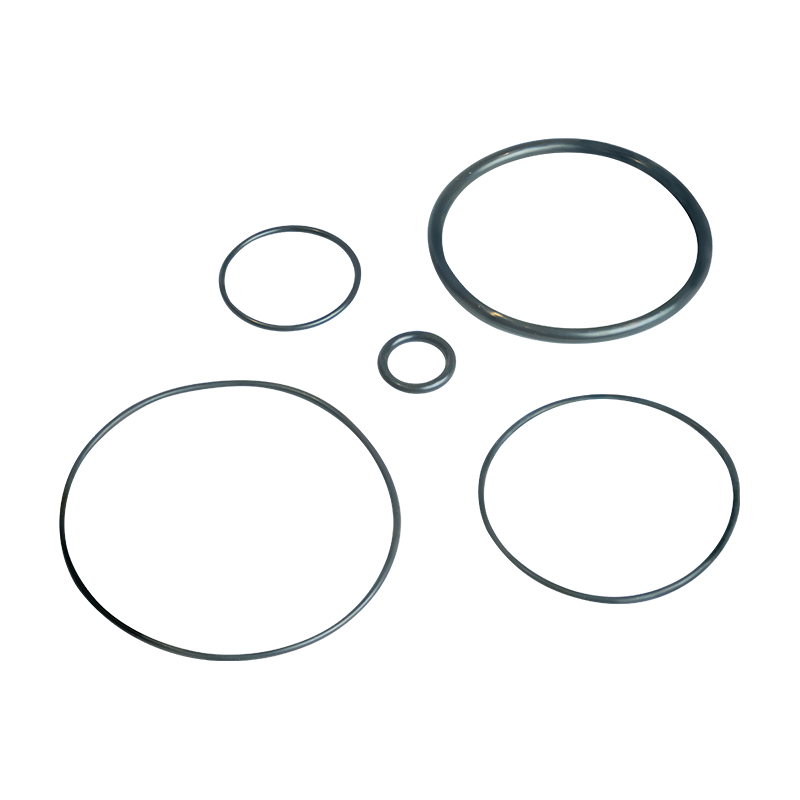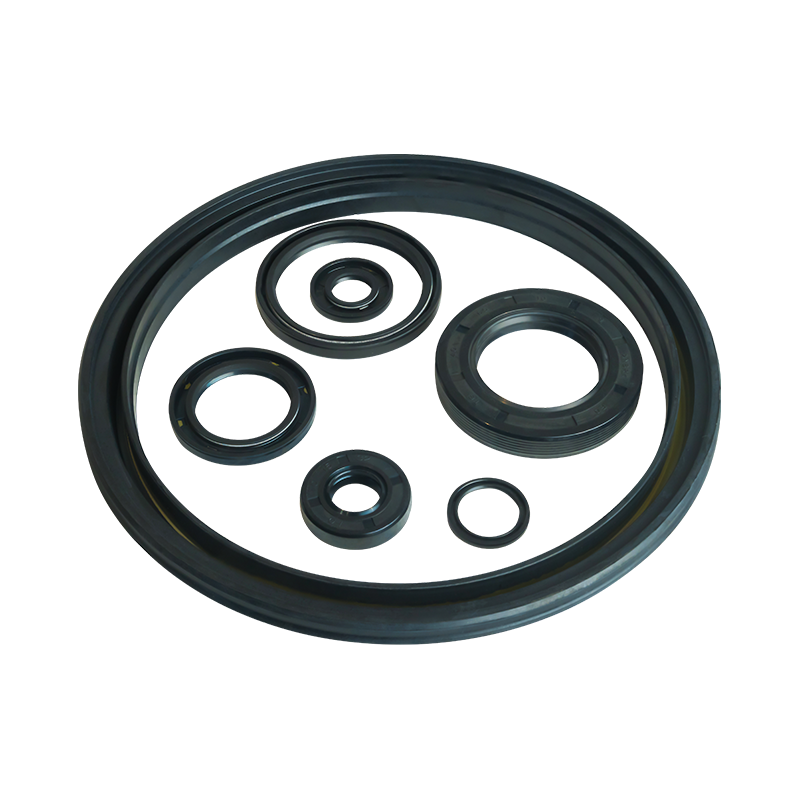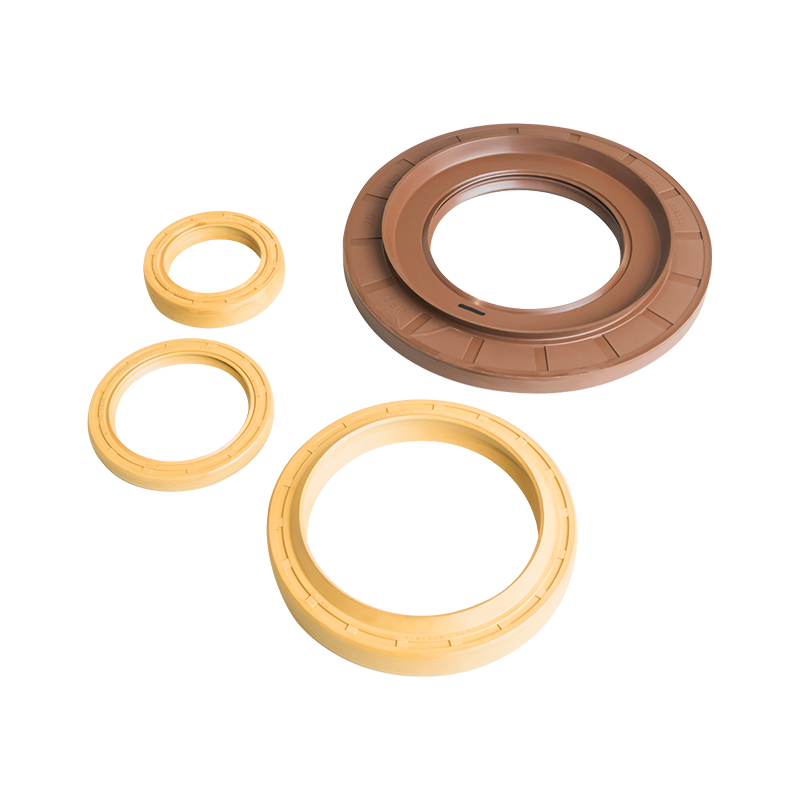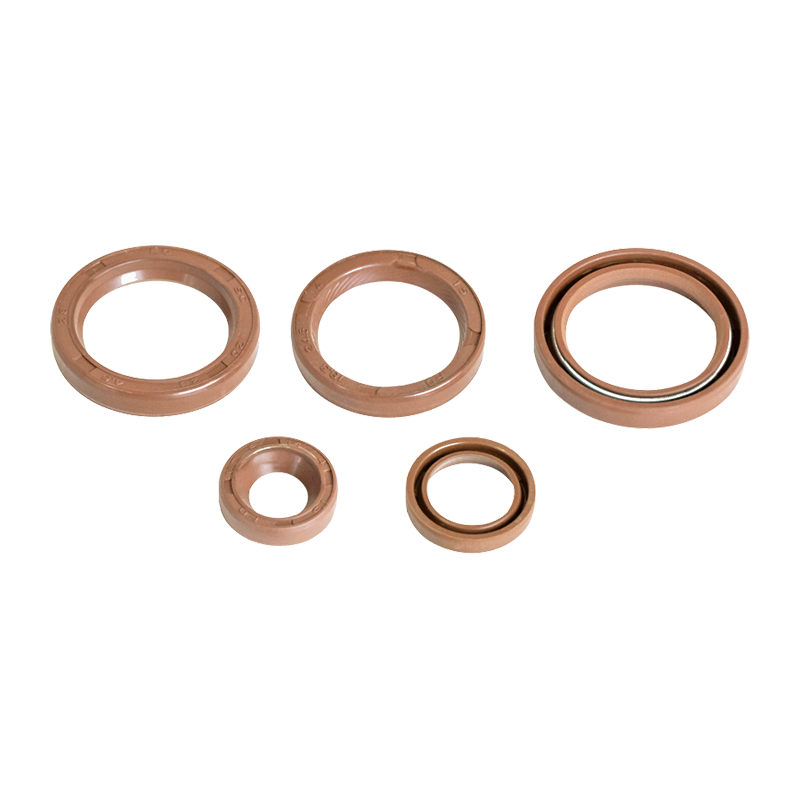Why are fluororubber FKM O-rings competent for sealing in extreme chemical environments?
In the field of industrial sealing, fluororubber (FKM) O-rings have become the preferred sealing element in harsh environments due to their excellent resistance to chemical media. Its core advantage lies in the chemical inertness given by its molecular structure, which enables it to maintain stable physical properties and sealing functions when facing strong acids, strong alkalis, organic solvents and various industrial fluids, without swelling, embrittlement or degradation like ordinary rubber. This characteristic makes FKM O-rings play an irreplaceable role in key equipment in industries such as petrochemicals, pharmaceuticals, energy and semiconductors.
The chemical resistance of fluororubber comes from the high bond energy of the carbon-fluorine bond in its molecular chain and the strong electronegativity of the fluorine atom. This structure makes the material surface energy extremely low, and most corrosive media are difficult to penetrate or destroy its cross-linked network. In a strong acid environment, such as long-term contact with concentrated sulfuric acid or hydrochloric acid, ordinary rubber will quickly break the chain or swell and fail, while FKM O-rings can maintain their original elasticity and compression permanent deformation rate to ensure a tight fit of the sealing interface. Similarly, under strong alkaline conditions, such as sodium hydroxide solution or ammonia environment, the stability of fluororubber far exceeds that of nitrile rubber or silicone rubber, making it an ideal choice for chemical reactors, pipeline flanges and pump valve seals.
Organic solvents are the "natural enemy" of many rubber sealing materials, but FKM O-rings can show excellent tolerance in most hydrocarbons, esters and aromatic solvents. In petroleum refining equipment, fuel, lubricating oil and hydraulic oil flush seals for a long time, and ordinary rubber is prone to volume expansion or softening, while fluororubber has a very low swelling rate and can maintain dimensional stability for a long time. In addition, in the pharmaceutical and food industries, FKM O-rings can withstand repeated cleaning and sterilization of alcohols, hydrogen peroxide and chlorine-containing disinfectants, and will not cause seal failure or contaminate the medium due to chemical corrosion. This adaptability makes it a reliable choice for aseptic production lines, bioreactors and CIP (on-line cleaning) systems.
In addition to conventional chemical media, FKM O-rings also perform well in special industrial fluids. For example, in the aerospace field, it can resist the corrosion of aviation fuel and hydraulic oil; in semiconductor manufacturing, it can withstand long-term contact with high-purity chemical reagents without generating particle pollution; in automotive fuel systems, it can cope with the challenges of new fuels such as ethanol gasoline. This wide adaptability is not accidental, but the inherent advantage of the molecular structure of fluororubber at the beginning of design.
Of course, the chemical resistance of fluororubber is not absolutely omnipotent. Some polar solvents (such as ketones, esters) or highly polar amine compounds may still have a certain impact on it. However, by adjusting the fluorine content, comonomer type and vulcanization system, the media resistance range of FKM can be further optimized to provide more precise sealing solutions for specific working conditions. For example, high-fluorine content FKM can improve resistance to strong oxidizing media, while tetrapropylene fluororubber is more suitable for high-temperature steam and alkaline environments. This customizability further broadens its industrial application scenarios.
Another key advantage brought by chemical stability is longer service life. In dynamic sealing applications, O-rings not only need to resist media erosion, but also need to withstand reciprocating or rotating friction. FKM's aging resistance makes it difficult to harden or crack during long-term use, thereby reducing the frequency of downtime maintenance. This is especially important in deep-sea equipment, high-temperature reaction equipment and other places where frequent maintenance is difficult.
From the perspective of material science, the excellent performance of fluororubber O-rings does not rely solely on a single characteristic, but on the synergy of chemical inertness, mechanical strength and thermal stability. But there is no doubt that its resistance to chemical media is the core factor that supports its reliable operation in extreme environments. Whether it is the highly corrosive pipelines of refineries or the sterile environment of the pharmaceutical industry, FKM O-rings can build a long-lasting sealing line of defense with stable performance, becoming an indispensable key component in modern industrial sealing technology.
Sray up to date with allour recent products
- Address: No. 6 Yangsha Road, Chengbei Industrial Park, Huilong Town, Qidong City, Jiangsu Province China
- Phone: +86-13906283641+86-18934546679
- Fax: +86-0513-83698022
- Email: [email protected]




 English
English русский
русский 中文简体
中文简体

